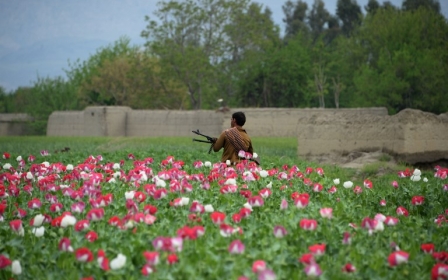Iran significantly softens drug trafficking death penalty law

Iran's parliament passed a long-awaited amendment to its drug trafficking laws on Sunday, raising the thresholds that can trigger capital punishment and potentially saving the lives of many on death row.
The new law raises the amounts that can trigger the death penalty from 30g to 2kg for the production and distribution of refined and man-made substances such as heroin, cocaine and amphetamine.
For natural substances such as opium and cannabis, the levels have been raised from 5kg to 50kg.
The amendment will apply retroactively, thus commuting the sentences for many of the 5,300 inmates currently on death row for drug trafficking.
The bill must still be approved by the conservative-dominated Guardian Council but gained parliamentary approval after months of debate, according to parliament's website and the ISNA news agency.
According to Amnesty International, Iran was one of the top five executioners in the world in 2016, with most of its hangings related to illicit drugs.
The watchdog noted sharp drops in the number of executions in Iran - down 42 percent to at least 567 that year.
Gangs targeted
The amendment restricts the death penalty to criminals who lead drug-trafficking gangs, exploit minors below 18 years old in doing so, carry or draw firearms while committing drug-related crimes, or have a related previous conviction of the death penalty or a jail sentence of more than 15 years or life in prison.
Under the new bill, the punishment for those already convicted and given the death penalty or life in prison, other than those meeting the new execution requirements, will be commuted to up to 30 years in jail and a cash fine.
Defending the bill in a parliamentary debate last week, Hassan Norouzi, the spokesman of parliament's judicial and legal committee, said the costs for Iran's war on drugs have almost doubled since 2010.
He said more than 6 million people were involved in drugs in the country, 5.2 million of them addicts and 1.8 million users.
The amendment had faced opposition from police officials who believed that reducing or removing the death penalty would embolden criminals.
But many judges had welcomed the softened law -- and stayed execution sentences as they awaited the results of the parliamentary debate, Norouzi said.
Iran's neighbour Afghanistan produces some 90 percent of the world's opium, which is extracted from poppy resin and refined to make heroin.
Iran is a major transit point for Afghan-produced opiates heading to Europe and beyond and confiscates and destroys hundreds of tonnes of illicit narcotics every year.
Stay informed with MEE's newsletters
Sign up to get the latest alerts, insights and analysis, starting with Turkey Unpacked
Middle East Eye delivers independent and unrivalled coverage and analysis of the Middle East, North Africa and beyond. To learn more about republishing this content and the associated fees, please fill out this form. More about MEE can be found here.




